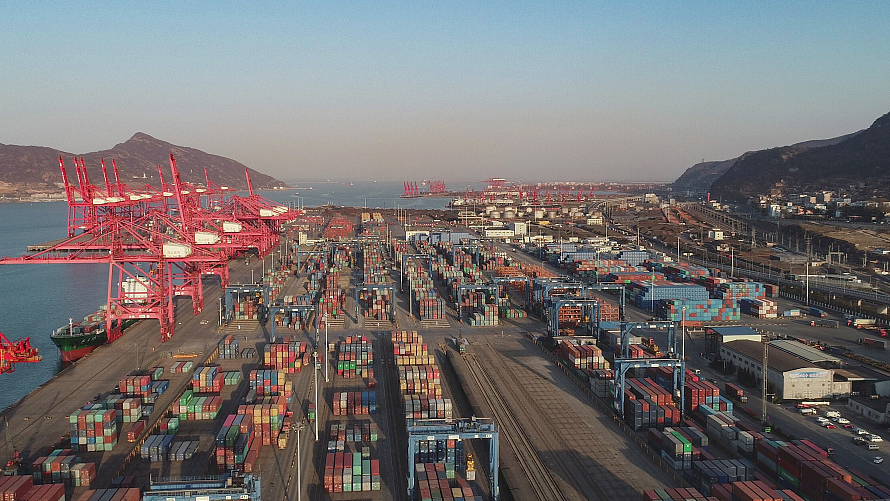
Economy
12:49, 15-Mar-2019
Premier Li on improving China's business environment, deregulation to allow fair market access
Updated
13:42, 15-Mar-2019
CGTN
14:58

The Chinese government will continue to pursue market-oriented and law-based reforms to ensure that concrete outcomes will be delivered through specific actions, said Chinese Premier Li Keqiang as he met the press at the Great Hall of the People after the conclusion of the second session of the 13th National People's Congress on Friday morning.
Li emphasized that in carrying out reform, the government must create an enabling environment for the market to perform its role to mobilize resources, and the government should do its best to energize all market players.
Li noted that although China has made impressive progress in improving the business environment through government function reforms, there are still shortfalls in certain aspects.
"We must listen closely to the views of all market players and do our best to help them release their vitality," Li said.
Businesses are calling for administrative processes to be streamlined, and the government needs to further ease regulations, Li said.
For example, many businesses have complained that it was taking too long to get a business license, and the government has managed to cut the time needed for such a process from 22 days to 8.5 days, and the government will continue to streamline the process, according to Li.
Li also noted that many businesses in China also reported that they need other permits besides business licenses to start operation.
"This year we plan to ensure that a business license should be enough for a company to be both up and running (apart from sensitive sectors linked to public security)," Li said.
"By deregulation, the government needs to ensure that companies of all types of ownership will stand to benefit as equals of the administrative streamlining. There should be no discriminative practices employed," Li said.
Improve IPR protection through compliance oversight
With broadened market access there must be tightened oversight, Li said.
For the past few years, there has been some complaint about malpractices, such as intellectual property rights (IPR) violations, hence there is a need for enhanced compliance oversight, Li said.
"We must ensure that all the rules are made fully open and transparent so that our market players are fully aware of their dos and don'ts. We must not exercise selective or arbitrary regulation," Li noted.
In terms of the certain countries' suspicions that the Chinese government asks Chinese companies to spy on other countries, Li stated explicitly, "This is not consistent with Chinese law, this is not how China behaves, we did not do that and will not do that in future."

SITEMAP
Copyright © 2018 CGTN. Beijing ICP prepared NO.16065310-3
Copyright © 2018 CGTN. Beijing ICP prepared NO.16065310-3